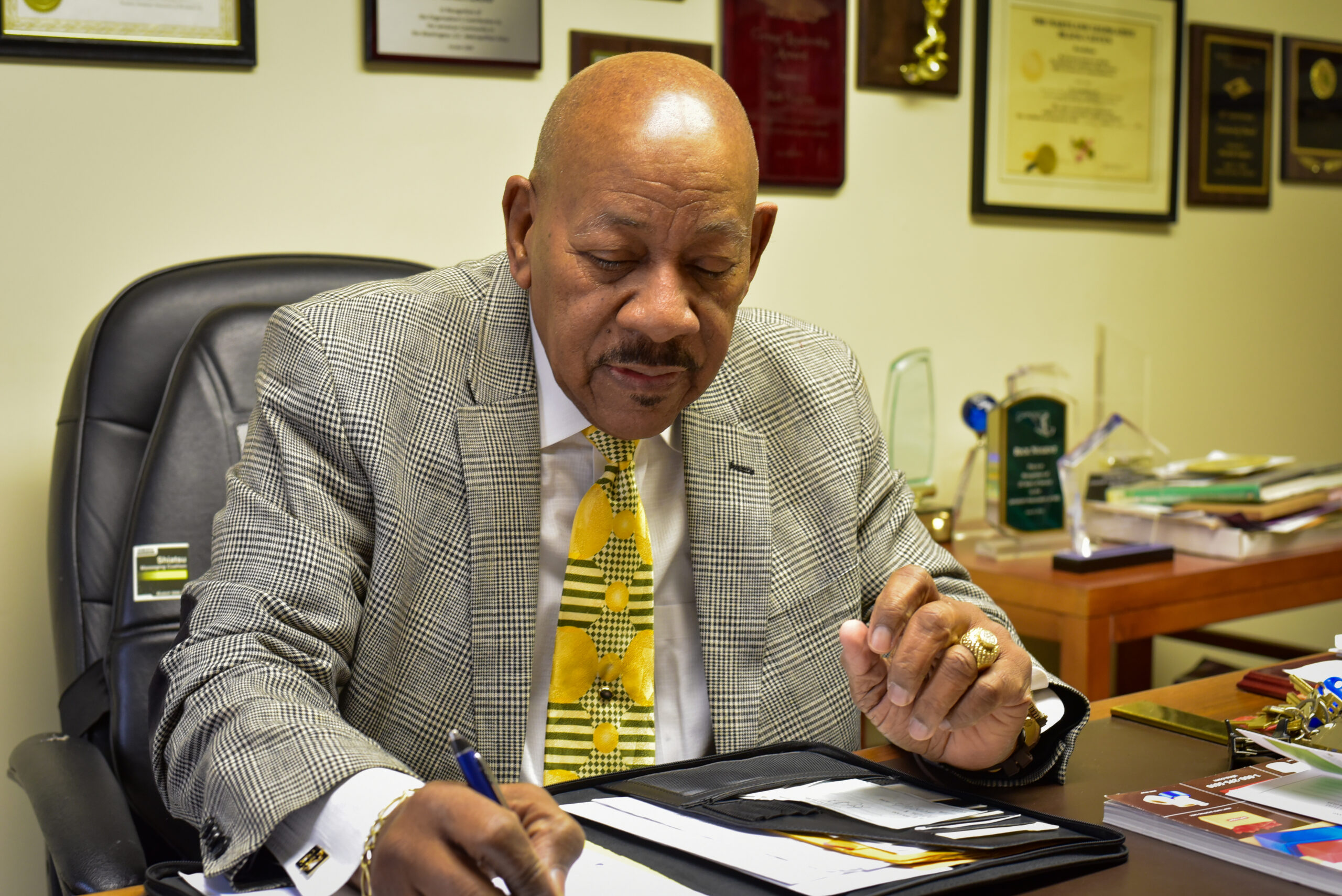Julius Garvey got a long-awaited phone call this weekend, letting him know his father, Marcus Garvey, would receive a posthumous pardon from the U.S. government in the waning hours of President Joe Biden’s tenure.
The youngest son of the Black nationalist and activist had been trying for years to get his father’s name cleared and, at age 91, had been growing a little dispirited. He gave a barely audible laugh when asked about it just hours after hearing the news.
“I’m very satisfied that President Biden has done this, even if it’s the last minute,” Garvey told Capital News Service in a telephone call. “But it’s appropriate in terms of his own legacy.”
The White House released a statement early Sunday granting the pardon Julius Garvey and many others in the Black diaspora believe is long overdue. Garvey, born in 1887, was one of the first globally known Black activists, and his conviction for mail fraud has been widely viewed as a cooked-up attempt to silence him.
Clearing his name was no easy feat. America prefers activists who talk about nonviolence, said Dr. Raymond Winbush, research professor at Morgan State University, and who “keep the status quo in the sense of fit[ting] into the system. Garvey was the exact opposite of that.”
Even President Obama, the nation’s first Black president, had declined to pardon Garvey. And as the days passed by last week without word from President Biden, Garvey had all but given up hope.
Garvey told CNS in an interview last week that he didn’t think the pardon would happen. He said he’d rather not talk about it and would take it up again after the inauguration of the next president.
The news on Sunday came after decades of hard work by his family and by many Jamaicans who revere him as their political scion.
Marcus Garvey, born in Jamaica when it was still a British colony, went on to found the Universal Negro Improvement Association in Kingston. He was the first person after the country’s independence to be awarded Jamaica’s highest honor of “national hero.”
He died in London in 1940 with a blemish on his record.
Garvey came to the U.S. in 1916 and built a following with a headquarters in New York, but he was eventually charged with mail fraud. His advocates say the charges were phony and, beginning in the late 1980s, activists began pushing for a pardon.
Almost forty years later, they achieved their goal. Winbush, director of the Institute for Urban Research, says the pardon will speak well of Biden, along with his decision to sign legislation establishing Juneteenth as a federal holiday commemorating the end of slavery in the U.S.
In Maryland, networks are lighting up among the Jamaican diaspora and supporters of Garvey.
“People are happy and calling each other, and I already sent a text out to all the members of the Jamaican Association,” said Rick Nugent, president of the Maryland chapter. “His name is cleared. That’s what we wanted for years. Finally done.”
“We want to make sure that our children, grandchildren and children to come will recognize the fact that Marcus Garvey is our first national hero,” Nugent said. He said that Vice President Kamala Harris, who has Jamaican heritage, may have been instrumental in helping push the pardon over the finish line.
Everett Winchester, Baltimore division president of the organization Garvey started, said the development clears the way for finally giving Garvey the respect he deserves.
“I’m overwhelmed with joy,” said Winchester, “because the big cloud over Marcus Garvey’s name and his character has been removed, and now we can go and canonize him and let everybody know how great he was.”
He hopes now to revive the organization and teach new generations about Garvey.
In Kingston, Jamaica, people are celebrating, too. Faith Anderson, head of a government-run institution known as “Liberty Hall, the Legacy of Marcus Garvey,” is exuberant.
Garvey is an example for others, Anderson said, because he came from humble origins, educated himself and galvanized black Jamaicans. He helped to ignite a push for independence from Great Britain.
“This moment reaffirms what we already know,” said Anderson. “Garvey was a visionary leader and his unjust persecution had to be overturned.”

